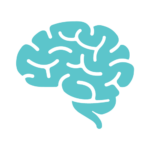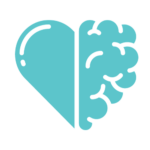Understanding Heroin Addiction
This page discusses all you need to know about Heroin Addiction and how we, at Akua, can help you. Click on a link for faster navigation:

AKUA and Heroin Addiction
AKUA helps individuals struggling with heroin addiction build a strong foundation for achieving lasting recovery. AKUA is the leading provider of holistic behavioral health treatment for heroin addiction and co-occurring mental health challenges.
We tailor individual heroin addiction and mental health treatment plans to each client’s unique needs, paving the road to a successful recovery.
Heroin is widely recognized for its highly addictive nature. When people use heroin, they experience extreme exhilaration, pleasure, and disassociation from reality. They often use the substance longer because they experience these good feelings, which raises the possibility of becoming addicted.
An individual’s entire life may suffer if obtaining, using, and recovering from heroin usage take precedence over all other considerations. An individual’s likelihood of developing a tolerance to heroin and eventually developing chemical dependency increases with the length of time that this substance is abused. Without treatment, it can be very difficult to overcome this dependency and addiction.
Understanding Heroin Addiction
Heroin is an illegal opioid that is considered a Schedule I drug by the Drug Enforcement Administration (DEA). It has strong addiction potential and causes severe, detrimental side effects.
Opiates are naturally derived from the opium poppy. Many opioids are prescription painkillers. However, heroin is an illegal opioid found with no medical benefits.
Heroin is known as one of the most addictive substances because of how it works in the brain. Heroin, like all other opioids, binds to natural opioid receptors in the brain, resulting in a euphoric feeling throughout the body and a decrease or elimination of physical pain.

The body produces natural opioids known as endorphins. Heroin binds to the same receptors, causing these natural endorphins not to work as effectively. In other words, heroin hijacks the brain and the body.
The drug is either smoked, injected intravenously (into a vein), or injected subcutaneously (through the skin). As with any injectable drug, heroin users have an increased rate of blood-borne diseases such as HIV and hepatitis as well as infections like sepsis resulting from unsterile injection sites.
Heroin is sold on the street. Common alternative terms include chasing the dragon, H, chine white, junk, and smack.
We accept most private insurance, and
handle all paperwork
Causes and risk factors for heroin addiction
The specific causes of heroin addiction can vary from person to person. However, research has shown that a combination of factors can play into why a person becomes a heroin addict.

Genetic:
There has long been evidence linking addiction to heredity. Individuals who have relatives who have abused or are addicted to heroin are more prone to experience similar issues than people without such a family history.

Environmental:
An individual may be more susceptible to start experimenting with heroin usage if certain environmental conditions are met. For instance, those who are around friends or family members who abuse drugs like heroin are more likely to participate themselves than they would in the absence of such exposure.

Trauma:
Going through a painful experience or becoming the victim of abuse or neglect can influence someone to look for and use and abuse drugs like heroin.
There are several causal elements that can influence a person’s vulnerability to developing a heroin addiction.

Potential Causes:
- Mental Health: Mental health disorders and early use
- Peer Groups: Peer pressure, peer substance use, and peer rejection
- Environment: Lack of family involvement, poverty, and child abuse or neglect
- Family History: Addiction can be more common in some families.
- Previous Drug Use: History of drug use, opioid prescriptions, and misuse of prescription opioids
Causes and risk factors for Heroin addiction
Research has shown that a combination of risk factor dynamics can play into why a person becomes a heroin addict. The following are some of these factors:
- Gender (males are more likely to abuse heroin than females are)
- Family history of substance abuse or substance use disorders.
- Having experienced a trauma
- Possessing a novelty-seeking temperament
- Possessing an impulsive personality
- Associating with peers who use heroin or other substances.
- Personal history of abusing other substances
- Having a low self-esteem
- Chronic exposure to violence, crime, and stress
- Impulsivity
Signs and symptoms of heroin addiction
The signs and symptoms present by someone who is suffering from heroin use disorder addiction will vary from person to person. And, depending on the severity of a person’s addiction to heroin, there are a variety of signs and symptoms that can show up in a person using heroin.

Behavioral symptoms
- Lying or being deceptive about one’s whereabouts and/or activities
- Lack of participation in significant activities
- Social withdrawal and isolation
- Failing with family, personal and occupation responsibilities
- Using heroin in circumstances when it is physically dangerous
- Failing to stop using heroin despite repeated attempts to do so
- Suicidal behaviors
AKUA Behavioral Signs & Symptoms List:
- Stealing money to pay for heroin
- Cashing out retirement accounts or life savings to pay for heroin
- Being unable to pay rent or a mortgage, leading to evictions and foreclosures
- Lose a job because of stealing money from company funds to purchase heroin
- Going bankrupt
- Avoiding loved ones
- Forgetting important family responsibilities
- Becoming domestically violent with children or romantic partners
- Lying to loved ones constantly
- Loss of appetite
- Losing a significant amount of weight
- Unexpected mood changes
- Faking pain-related emergencies or hurting themselves intentionally so they can receive pain medication
- Having an excess of pill bottles and prescription pads in their home or in their vicinity
- Wearing long sleeves in the summer or warm climates to hide track marks

Physical symptoms
- Constipation
- Runny nose
- Weight loss
- Lethargy
- Insomnia
- Dry mouth
- Watery eyes
- Runny nose
- Frequent bruising or scabbing of the skin
- Persistent flu-like symptoms
- Slowed breathing
- Lowered heart rate
- Pupil constriction
- Itchiness
- Nausea
- Vomiting
- Scabs, sores, and other skin problems (if injecting heroin)
- Flushed skin

Cognitive symptoms:
- Concentration difficulties
- Confusion
- Poor judgment
- Inability to think clearly
- Inability to use sound judgment and reason

Psychosocial symptoms:
- Euphoria
- Mood swings
- Anxiety
- Desire for isolation
- Loss of interest in things that one once found enjoyable
- Depression
- Excitability
- Hostility
Achieve Lasting Recovery!
Effects of heroin addiction
An individual who abuses heroin on a regular basis may have a number of negative effects, including the harm to their health and wellness listed below:
- Lost friendships
- Demise of marriages or partnerships
- Loss of child custody
- Interaction with the legal system
- Incarceration
- Occupational failure
- Financial strife
- Homelessness
- Onset of self-harming behaviors
- Pneumonia
- Tuberculosis
- Liver and kidney damage
- Hepatitis B and C
- HIV/AIDS
- Strained interpersonal relationships
- Academic failure
- Job loss
- Chronic unemployment
- Homelessness
- Suicidal ideation and attempt
Longer Term Effect
Furthermore, long-term heroin misuse can have a disastrous effect on a user’s physical and emotional well-being. Some instances of these kinds of drawbacks are as follows:
- Scars from injecting the substance intravenously
- Clogged blood vessels
- Organ damage
- Erectile dysfunction in males
- Disturbances of reproductive functioning, including irregular menses, in women
- Heart attack
- Stroke
- Onset of new, or worsening of current, mental illness symptoms
- Chronic suicidal ideation
- Seizures
- Contraction of viruses, such as HIV/AIDS, hepatitis, cellulitis, tuberculosis, and endocarditis
- Irreversible cognitive impairment
- Perforation of the nasal septum from snorting the substance
Heroin Addiction And Dual Diagnosis
It is not uncommon for individuals who are addicted to heroin to also suffer from mental health issues. This is referred to as dual diagnosis or co-occurring in clinical terminology. Because drug use alters a person’s brain chemistry, addiction to drugs can render a person more susceptible to other mental disorders. Dual diagnosis is common in those battling heroin addiction and includes the following conditions:
- Posttraumatic stress disorder (PTSD)
- Other substance use disorders
- Antisocial personality disorder
- Depressive disorders
- Conduct disorder
- Posttraumatic stress disorder (PTSD)
- Major depressive disorder
- Antisocial personality disorder
One of the many reasons it is crucial to receive treatment for heroin addiction at a facility that provides dual diagnosis programming is the potential existence of additional disorders. Many people wait until they enroll in a program before realizing they require care for two co-occurring diagnoses. If you don’t receive the necessary dual diagnosis care, it may be more difficult for you to overcome and stay in long-term heroin addiction recovery.

AKUA Mind & Body Dual Diagnosis Treatment Program
Treatment for co-occurring disorders aims at treating both the mental health disorder, and the substance use disorder with an integrative approach, including:
- Medical detoxification
- Psychotherapy
- Family therapy
- Social support groups
- Medications to treat mental health disorders
- Aftercare treatment
Effects of Heroin Withdrawal And Overdose
Heroin Overdose
Overdosing on heroin can be extremely life-threatening and requires immediate medical attention. The extent of the overdose depends on the amount and purity of heroin used, other consumed substances, and the individual’s age and weight.
Heroin overdose can be completely unexpected as individuals can overdose during their first time or never overdose at all as a lifelong user; hence why this is such a dangerous illegal substance.
The following are the signs and symptoms of heroin overdose:
- Bluish lips, nails or extremities
- Shallow breathing
- Weak pulse
- Extreme drowsiness
- Delirium or confusion
- Loss of consciousness
- Coma
- Dry mouth
- Constipation
- Low blood pressure
Effects of Heroin Withdrawal
Withdrawal symptoms may appear when long-term heroin use is abruptly stopped. The body goes through this withdrawal phase in an attempt to get back to how it was before heroin was introduced. This withdrawal process can be quite unpleasant and even dangerous at times. Here are a few instances of symptoms and indicators that someone may be experiencing heroin withdrawal:
- Intense cravings for heroin
- Feelings of restlessness
- Insomnia
- Bone pain
- Abdominal cramping
- Muscle pain
- Flu-like symptoms
- Nausea
- Vomiting
- Diarrhea
- Agitation
- Watery eyes and runny nose
- Anxiety
- Dysphoria
- Inability to experience pleasure
- Excessive sweating

Effects Of Heroin Overdose
An overdose happens when a person consumes more heroin than their body can safely absorb. Occasionally, the body will seek to eliminate the excess amount of the chemical by trying to induce vomiting. However, this approach does not always work, leaving the person in a life-threatening situation. If someone displays any of the following symptoms, it’s important to consider them warning signs of an overdose that need immediate medical attention:
- Extreme drowsiness
- Tongue discoloration
- Lips turning a bluish color
- Disorientation
- Weakened pulse
- Low blood pressure
- Muscle spasms
- Labored breathing
- Constricted pupils
- Heart attack
- Coma
- Seizures
- Stroke
- Slowed heart rate
- Pupil dilation
- Abdominal cramps
- Bluish tinge near mouth or fingertips
- Muscle spasms
- Loss of consciousness

Treating Heroin Overdose at AKUA
Heroin overdose can be deadly but there is an antidote that can be administered via intranasal or injection. Naloxone is an opioid receptor blocker and is used to prevent heroin and all opioids overdose. Naloxone prevents heroin from binding to its receptors in the brain, therefore causing immediate physical withdrawals.
An individual can be in and out of consciousness and can immediately experience painful withdrawal within seconds after naloxone is administered. Naloxone can be prescribed to patients and their families who are using prescription opioids, who are at risk of withdrawal, or who have an active history of heroin use.
At Akua, we turn heroin overdoses into stories of resilience, weaving hope into every recovery journey.
Naloxone is also widely administered by EMS workers and in hospitals. Many governments and privately funded agencies are working diligently to educate the public on the proper use of naloxone and the importance it can have on saving lives from a heroin overdose.
Why you should consider AKUA
for Opioid Addiction Treatment
FAQ: Common Questions About Heroin Addiction
Akua Behavioral Health offers addiction treatment programs in a residential, community-based setting. Our clients stay in our home-like program, with 24-hour supervision to ensure their safety and comfort. Inpatient drug rehab gives clients the best chance at lasting recovery through highly-structured care for those struggling with drug, alcohol and/or their mental health.
Many clients stop experiencing withdrawal symptoms 3 to 7 days after starting our detox program. While the experience may vary due to various factors, Akua Behavioral Health is committed to providing our clients with safe and comfortable detox.
Akua Behavioral Health works with most major insurance plans to ensure quality addiction treatment is accessible for our clients.
AKUA works closely with most HMO, EPO, and PPO insurance plans including AmeriHealth, Humana, United Healthcare, Allcare Health, Highmark, UPMC Health Plan, and is In-Network with Anthem Blue Cross, Aetna, Cigna, HealthNet, Blue Cross/Blue Shield, Magellan, Molina, HMC Health Works, Tricare, Beacon Health Options, IKWO, Western Health Advantage, Prime, Multi Plan, EHN, ComPsych, First Health Network, USAMCO, Triwest, and more.
